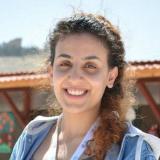Paediatrics and Child Health: Global Child Health MSc
London, Bloomsbury
Study mode
Overseas tuition fees (2024/25)
£34,400
£17,200
Programme also available on a modular (flexible) basis.
Duration
1 academic year
2 academic years
5 academic years
Programme starts
September 2024
Applications accepted
Applicants who require a visa:
16 Oct 2023 –
28 Jun 2024
Applications closed
Applicants who do not require a visa:
16 Oct 2023 –
30 Aug 2024
Applications closed
UCL is regulated by the Office for Students.


